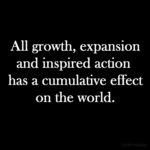You’ve probably been in a social setting and heard people in relatively normal conversation use the word delusional and wondered, “What does it mean to be delusional?” Just so you know, this word is often mis-and-over-used by people in a disrespectful manner, especially by predators and bullies, but also as a general characterization of a set of personality traits in therapy. So, what is delusional?
To understand what it means to be delusional you must comprehend that society and/or people have a certain set of normal (or widely held) beliefs to which they attach their sense of security. That is to say the masses, or general population, would agree on a particular precepts or ideals and affirm by congruent feelings that they are held to be “true.”
What is Delusional?
A person who highly regards any idea which is contrary to what is either a popularly held ideal, or appears to other people to not be supported by factual data, might be considered to be delusional, especially if the idea is extreme in comparison to popular belief or generally accessible and available data.
Everyone, at some point in time, might consider an idea which is not widely agreed to be factual or prudent, but these generally are dispelled relatively quickly, by gaining additional information which causes the idea to break down, or friends, peers, or counselors can help to assist the person who dares to believe such a thing that their perception is incorrect, convincing the person that the idea is unsound and cannot stand on its own.
If the subject continues to align his or her thoughts with this contrary thought pattern or philosophy, he or she might be considered as suffering from Delusional Disorder and referred to professionals for treatment. In a sense, to reel him or her back into a better sense of “reality” to which the masses agree is a more normal perspective.
There are many different types of delusions, such as a paranoid belief that one is under surveillance or secretly persecuted by some government or other unknown sources (may include spirits, demons, or aliens), which is the most common type of delusion.
Then there is the medical dysfunction type of delusion where the subject claims to suffer from a type (or many types) of physiological conditions, believing they have unsubstantiated diseases, bugs, implants (or extractions) where there is no physical evidence to support such claims.
The love delusion refers to a condition of a person who believes he or she has a romantic relationship with someone (usually someone in a higher position/stage of life, such as a celebrity) which is intense in nature, but not substantiated in any way, except in his or her own mind.
The delusion of superiority is indicated by the person who sees himself or herself as better than anyone else due to their own definition (which is not generally agreed to) of being smarter, wiser, imbued with special (magical) abilities, access to unsubstantiated “secret” information, or special relationship with a higher intelligence (or God).
Of course, there are many types of delusions which could be categorized but in most cases, these ideas are often considered as “bizarre” at first blush.
In clinical circles delusional disorders are considered psychiatric conditions and people who suffer from them can be treated by pharmaceuticals which alter brain chemistry, causing patients to think “normally,” and treatment may include cognitive therapies in an attempt to re-establish a normal paradigm of thought.
There is a great deal of concern among the psychiatric and therapeutic communities focussing on the normalization of all peoples, which could support the idea of there being those whosuffer from Individuality Psychosis.
You might see how many major breakthroughs in science and emerging technologies may not have been possible if their inventors or out-of-the-box thinkers had been diagnosed and treated for their delusional disorders.
It makes you wonder…






